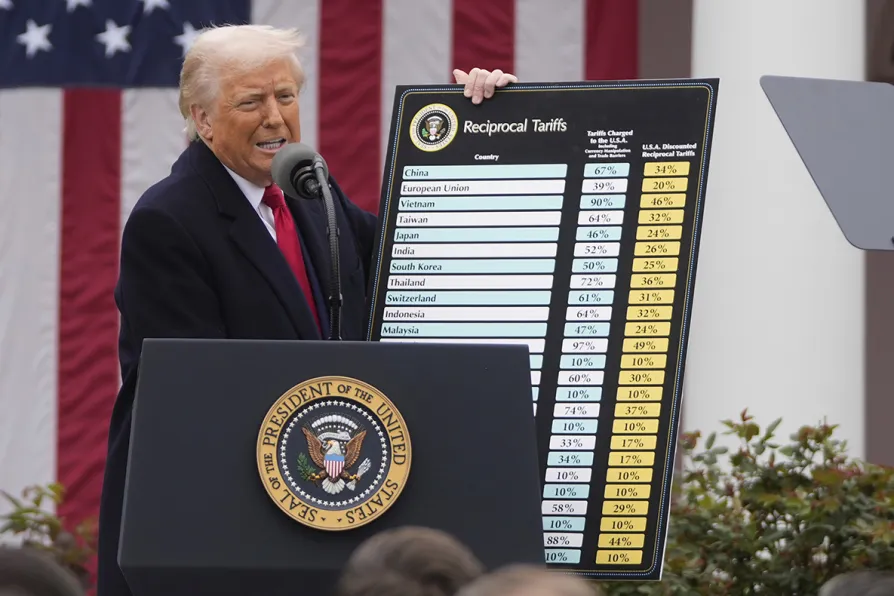
 US President Donald Trump speaks during an event to announce new tariffs in the Rose Garden at the White House on April 2, 2025
US President Donald Trump speaks during an event to announce new tariffs in the Rose Garden at the White House on April 2, 2025
TALKS continued in Switzerland between China and the United States today, to see if an agreement was possible to end the tariff war launched by US President Donald Trump.
The talks, led by Treasury Secretary Scott Bessent on the US side and Vice-Premier He Lifeng on the Chinese, began on Saturday in Geneva.
Mr Trump raised US tariffs on China to a combined 145 per cent last month, before China retaliated with a 125 per cent levy.
Such high tariffs essentially amount to a boycott of each other’s products, disrupting trade that last year topped $660 billion (around £493 billion).
In a Saturday editorial, China’s Xinhua News Agency said the talks had come about “at the request of the US side” and that China agreed to them “after taking full account of global expectations, national interests and appeals from US businesses and consumers.”
“Whether the road ahead involves negotiation or confrontation, one thing is clear: China’s determination to safeguard its development interests is unshakable, and its stance on maintaining the global economic and trade order remains unwavering,” Xinhua said.
“Talks should never be a pretext for continued coercion or extortion, and China will firmly reject any proposal that compromises core principles or undermines the broader cause of global equity,” it added.
No major breakthrough has been announced, but President Donald Trump said “great progress” was being made in the talks and called for “an opening up of China to American business.”
Before the talks got underway, President Trump suggested on Friday that the US could lower its tariffs on China, saying in a Truth Social post that an “80 per cent tariff seems right!”
Talks got under way as the US economy was found to have shrunk by 0.3 per cent over the first three months of the year.













